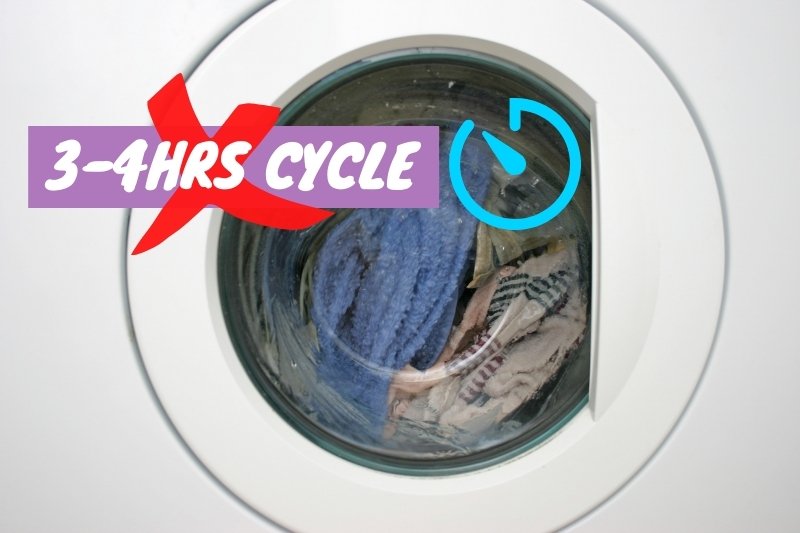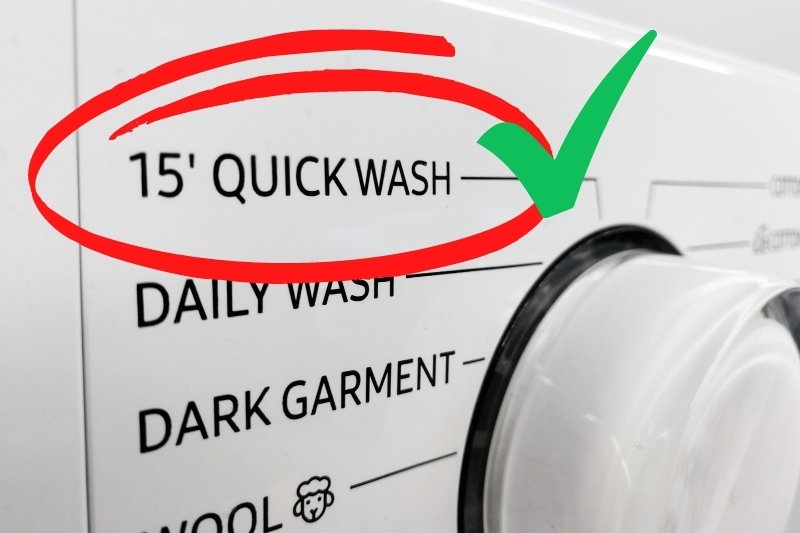Modern washing machines are notorious for their seemingly endless cycles, which can be inconvenient for some. Maybe you like to stay home while the machine is on in case of any problems, or maybe you would like to put it on overnight but you can still hear it from your bedroom.
Long washing cycles come with their downsides, so why exactly do they take so long? In this article, we’ll explain why washing machines take so long to finish and outline whether you can speed the process up.
Why Do Washing Machine Cycles Take So Long?

Modern washing machines are made to consume as little water as possible while still cleaning our clothes, which is the reason that they can take a long time to complete a wash.
For a while now, there has been increasing awareness around reducing our carbon footprints and one way in which we can do this is to consume less water and energy.
As washing machines use less water and energy, the rinse cycle takes longer to complete to ensure that clothes get completely clean.
This is especially the case in the EU where the efficiency of electrical appliances is regulated. Although the UK is no longer part of the EU, the rules have not been scrapped overnight and we will likely keep these regulations in place.
Most washing machines carry an energy efficiency rating from A to G. Today, washing machines must have a higher energy rating to be approved for sale. Anything up to D can be considered energy efficient. However, the higher the rating, the longer the cycle may take.
Why Do Washing Machines Take So Long to Open at the End of a Cycle?
Another factor that can make a washing machine cycle seem endless is the last couple of minutes before the door can be opened.
When the cycle finishes, the door stays locked for another minute or two for safety reasons. The manufacturers put this setting into place to be sure that all the water has drained and the clothes have finished spinning.
How Long Should a Washing Machine Take?

A standard cotton or synthetics wash cycle should take about 1-2 hours. The actual time a wash cycle takes can depend on the size of the load and the programme you choose.
Some factors that may increase the duration of a cycle are:
- A large, tightly-packed load
- Heavier items such as towels and hoodies
- Choosing a wash program with pre-wash or extra treatments
- A lower temperature wash may take longer
See our guide to average washing machine cycle times for a comparison of the top brands.
How Long Is Too Long?

Although modern machines do generally take longer to finish than their older counterparts, that doesn’t mean that they should be taking all day.
Cycles that take around 3-4 hours may indicate an issue with the machine itself. In this case, it may be a good idea to have a specialist check out the machine.
How Do I Make my Washing Machine Finish Faster?

There are a few steps you can take to optimise your cycle time:
- Don’t overload your washing machine as this will cause it to have to work overtime to clean every garment.
- Choose a quick-wash programme.
- Wash similar items together. Heavy towels and hoodies should go in one wash and light t-shirts and underwear in a separate wash. This is because once items are wet, the machine may recalibrate to accommodate for the new weight and having denser items may make the load time increase.
- Check that your water pressure is at its full capacity. Lower pressure means that the machine will take longer to fill up.
However, some experts caution against trying to reduce cycle time as this can be damaging to the machine. This is because washing on a quick wash may not dissolve all of the detergent and fabric softener, leaving it to coat the drum.
It is also not a good idea to choose the quick wash for a larger load as this is counterproductive for the machine.

In The Wash is your guide to the best laundry and cleaning products, tips and tricks. Our mission is to solve the UK’s cleaning and laundry dilemmas!






